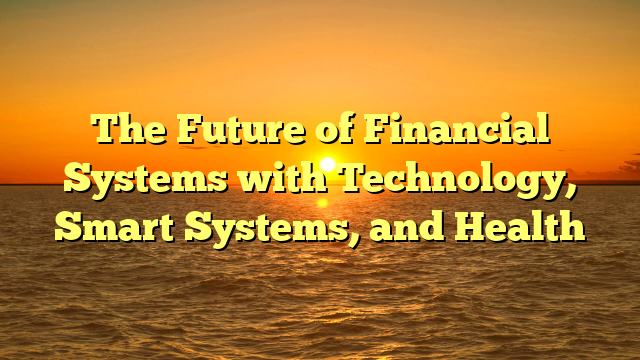In the modern age, the fusion of monetary systems, tech advancements, intelligence, and health is creating a radical impact on how we operate. In this piece, we’ll discuss how these fields are intertwined, and how they in unison redefine the landscape of our global society.
Digital Transformation of Finance
Long gone are the times of physical banking, replaced by online platforms that deliver instant access to financial data, investment platforms, and financial management apps.
Financial technology has grown rapidly in the past decade, bringing forth solutions such as digital currencies, AI advisors, and mobile banking. Users now expect seamless financial experiences that match their digital lifestyles.
Some key aspects include:
Decentralized ledgers provides transparency in financial records.
Machine learning algorithms help in portfolio management.
Embedded kursi4d puts money tools in e-commerce.
Technology as a Catalyst
Technology is not just about software; it’s about how we use it in daily decisions. From IoT systems to edge technology, the digital infrastructure is fueling change in every sector.
In finance, for instance:
Fingerprint scanning enhances security.
Smart contracts on Ethereum eliminate the need for middlemen.
Data analytics empower more accurate financial services.
And in health:
Wearables monitor everything from heart rate to stress levels.
AI diagnostics support the process of diagnosing diseases.
Telemedicine allow access to professionals worldwide.
Intelligence and AI
Machine learning is arguably the most significant technology of the 21st century. Its capabilities span from finance to transportation, shifting the status quo.
In finance:
AI can analyze stocks using deep learning.
Chatbots enhance customer service in fintech.
Fraud detection systems using AI can trace suspicious behavior in real time.
In health:
AI systems can review medical images with speed that rivals human specialists.
Personalized medicine is now possible with AI analyzing patient history.
Mental health platforms are using AI to track mood patterns based on interactions.
Where Health Meets Tech and AI
Without health, there’s no wealth, and technology is allowing individuals to monitor their well-being. From personalized nutrition plans, the line between wellness and routine is fading.
Mobile apps powered by predictive systems can now:
Recommend routines based on your genetic profile.
Alert you when your vitals spike unexpectedly.
Track symptoms and connect you with doctors.
Even financial health is being optimized:
Budgeting tools use AI to guide spending.
Insurance plans now adjust based on health data from wearables.
Companies reward healthy behavior with lower premiums.
Looking Ahead: Challenges and Promise
With all this progress, questions about privacy have emerged. Who owns your data? How much should an AI system know about your body, money, or habits? Is personalization worth the cost of surveillance?
Governments and tech leaders are now working on:
Digital rights frameworks.
Accountability structures.
User awareness.
The future lies in a harmonious use of these powerful tools.
Final Thoughts
These four pillars are not independent systems anymore. They are deeply connected, and together, they’re building a smarter, healthier, and more financially empowered world.
In the years to come, embracing these innovations with integrity will be crucial to succeeding in this new era.
